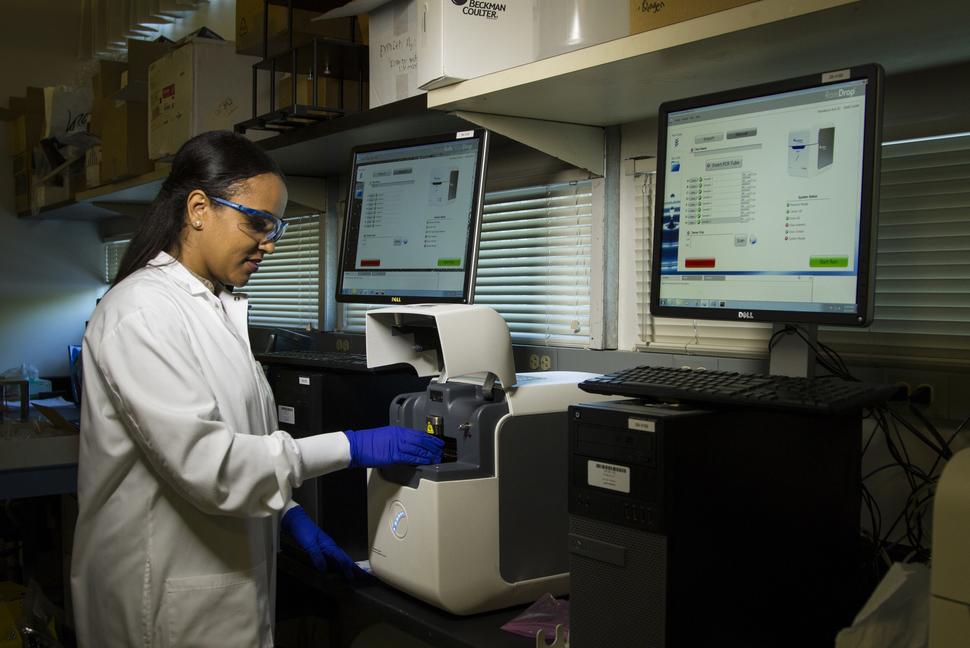Definition of Breast Cancer Genes for Panel Testing
, by DCEG Staff
An international team of scientists, known collectively as the Breast Cancer Association Consortium (BCAC), examined the association of breast cancer and rare genetic variants in 34 genes known or suspected to contribute to breast cancer risk in more than 113,000 women. Their results were published in the New England Journal of Medicine on January 20, 2021.
The use of genetic testing to evaluate an individual’s risk of breast cancer has become widespread, however, the evidence regarding the association between many genes on these screening panels and risk of breast cancer is often limited. BCAC researchers analyzed germline sequencing data from over 60,000 women with breast cancer and 53,000 women without breast cancer. They identified several protein-truncating variants in genes that were significantly associated with overall breast cancer risk: ATM, BRCA1, BRCA2, CHEK2, PALB2, BARD1, RAD51C, RAD51D, and TP53. Upon further examination of particular breast tumor subtypes, the investigators found that ATM and CHEK2 variants were most strongly associated with risk of estrogen receptor (ER)-positive disease, while BARD1, BRCA1, BRCA2, PALB2, RAD51C, RAD51D, and TP53 were most strongly associated with risk of ER-negative disease. In addition, the authors confirmed that rare missense variants in BRCA1, BRCA2, and TP53 that would be classified as pathogenic were also associated with overall breast cancer risk.
These findings define the genes that are most clinically useful for inclusion on genetic screening panels for the prediction of breast cancer risk, and provide risk estimates for variants that may guide genetic counseling.
Reference
Breast Cancer Association Consortium. Breast Cancer Risk Genes — Association Analysis in More than 113,000 Women. N Engl J Med. January 2021. DOI: 10.1056/NEJMoa1913948. [Epub ahead of print]
